
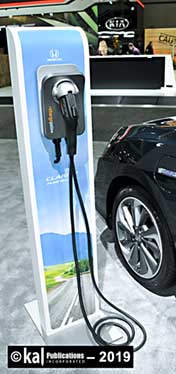
Automobility L.A.
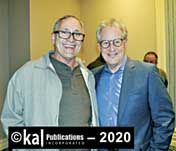
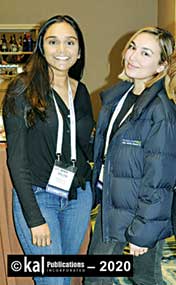
California Fuels & Convenience Alliance Member Reception
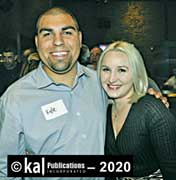
PME Customer Appreciation Party
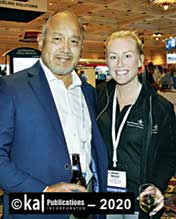

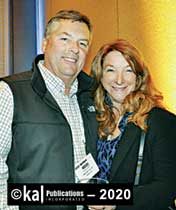

WPMA Convention Customer Hospitality Events
Want to see the photos that didn't make the issue? Check out the Cutting Room Floor.
EMV Deadline
Moved to April 2021
COVID-19 Effects
Ripple Across Western Energy Industry
Autec Car Wash
Acquired by Keller
WASHINGTON, D.C. — After years of stating the EMV deadline was locked in place, the disruption caused by COVID-19 has prompted credit card processors to extend the EMV deadline for fuel dispensers forward six months.
The EMV deadline required service station owners to upgrade the electronics on their pay-at-the-pump dispensers to enhanced security systems available with chip credit cards. All gasoline retailers were required to have the EMV compliant equipment in place by October 1, 2020 or be responsible for fraudulent charges.
The new deadline is now April 16, 2020 for the equipment upgrades to be in place.
Visa was the first credit card company to agree to the extension, followed two days later by American Express and a week later by the Discover Card. MasterCard joined the other card issuers to extend the deadline at the end of May.
Industry associations had been lobbying for the extension due to the expense and difficulty of getting upgraded dispensers as well as challenges in finding skilled service station technicians to install the dispensers.
PMAA, NACS, SIGMA, NATSO and the Merchant Advisory Group requested the deadline extension in a March 23rd letter to the credit card companies because the coronavirus lockdown and social distancing requirements made it impossible for EMV vendors to install new equipment and software at many retail locations.
"Our retailers' top priority at this time is providing fuel and other products to the Americans who need it most and keeping its employees and customers safe and healthy. Given the significant impediments to many retailers getting AFDs [Automotive Fuel Dispensers] and appropriate software that accept EMV payments developed, tested, certified, and installed, we respectfully request that you delay the AFD liability shift and set a new, achievable date for that transition once the current crisis has abated," stated the letters to the credit card companies.
PMAA recently completed an EMV survey over an 8-day period (April 30-May 7th) in which 253 companies participated, with 24% from the Western states. Only 19% of respondents reported at least 75% of their stations were in compliance with the EMV standards.
In addition, over 75% reported that the COVID-19 pandemic was impeding their business from being 100% compliant by the deadline. Social distancing policies and "stay at home" orders have significantly impacted the workforce and had a downstream effect on the EMV migration process, with reported delays in equipment, increased lead times and lack of technician availability.
"The EMV delay comes at a time when convenience stores' main objective is keeping stores open to meet the essential needs of their customers and communities. We are glad to see Visa recognize the unequivocal economic impact coronavirus is having on businesses," stated Anna Ready Blom, NACS director of government relations, when Visa made the decision to extend the deadline.
PMAA President Rob Underwood noted, "The six-month delay is welcome news to our industry which will give us more time to fully comply." He added, "It ensures that enough EMV vendors will be available to convert retail sites in a timely manner by the new April deadline."
Over the last few months, the response to COVID-19 has brought a virtual shutdown to the United States — and the world — economy. While the majority of the workforce in the United States was ordered to stay at home, a handful of industries were singled out to be "essential" and remain in operation. It comes as no surprise to the readers of the O&A that gas stations, truck stops, convenience stores, trucking companies, and petroleum marketers were all classified as "essential" and have remained open and operating.
Of course, it has not been 'business as usual' for the industry, even though the majority of companies have remained open and operating. Workers who were able to do their jobs from home have been doing so. Those who remain on the 'front lines' serving their customers have had to make major changes in how they do their business, including increased safety measures for workers and customers.
The first and most drastic effect for this industry has been the destruction of fuel demand. Western state governments were among the first to issue "Stay at Home" and "Shelter in Place" mandates. Workers were not allowed to travel to conduct business but were forced to stay at home and work remotely or to be furloughed. Commuter traffic virtually disappeared from the roads as only a handful of "essential businesses" were allowed to be opened.
As schools were closed, businesses shuttered, and travel restricted, demand for fuels plummeted. The street price for fuel dropped dramatically across the West to almost 70 cents per gallon lower than when the COVID-19 lockdowns began. But customers couldn't take advantage of the lower prices — they weren't going anywhere outside their homes.
As demand was destroyed, all levels of the fuel distribution chain found themselves with an unusual problem in the West: too much supply. Tanks were full at the refineries, at jobberships, and at service stations.
This led to another action virtually unheard of in the West: production cuts. At the end of April, Marathon announced it would "temporarily idle" its Martinez refinery, taking almost seven million gallons of fuel out of the market. Chevron cut production at its El Segundo refinery. ConocoPhillips said it would "voluntarily curtail" production by 225,000 bpd in the United States in April, cut an additional 125,000 bpd in May, and will make additional cuts in June.
"These actions reflect our view that near-term oil prices will remain weak, largely due to impacts from COVID-19 and continued oil oversupply," stated ConocoPhillips in an official notification.
BP said they have seen "about 50%" demand destruction for gasoline and diesel, a drop of 80% demand for aviation fuel, and lube oil demand falling from 50% to 90%, depending on the product.
In an unprecedented moment, the futures price for a barrel of WTI crude in May closed at -$37.63 at the end of April — producers were paying buyers to take the product. Why? Storage was — and is — full and traders did not expect demand to begin to increase until June.
"So, all of this begs the questions: How low can prices get, and how long will gas stay cheap?" wrote Dave Hackett, Stillwater Associates. "For California, retail gasoline prices could fall to below $2.00 per gallon if spot prices remain at these low levels. (It is worth noting that, currently, California's taxes and climate change fees make up about $1.00 of the per-gallon cost to consumers.) Gas prices will stay low until the high gasoline inventory levels drop to more normal levels. That could take months."
While fuel demand has dropped dramatically, convenience stores have found some of their sales increasing. According to the National Association of Convenience Stores, more than half of convenience retailers (52%) say their grocery sales have increased since the pandemic begin.
In addition, their product mix has changed. Convenience stores reported that 52% of them are adding more cleaning/toiletry items, 31% are emphasizing ready-to-heat meals, and 28% are offering more multi-pack/bulk items. This has helped to offset the elimination of self-serve food items like coffee, fountain drinks, baked goods, and roller grill foods in almost half the c-stores.
Across the board, gasoline stations and convenience stores have enhanced their cleaning protocols with regular cleaning of "high touch" surfaces including dispensers, credit card/ATM pads, and register areas. Most have supplied their staff with masks to enhance their protection and many have helped customers with social distancing by marking the floor at six-foot intervals to keep those in line safe.
In a change that many believe will outlast the COVID-19 crisis, many convenience stores are offering curbside pick up or delivery options.
In one example, at Kum & Go stations, customers now are offered the opportunity to have convenience store items delivered to their cars while they are fueling. Customers are asked to call the store on their phones and place their order and receive delivery in the station's forecourt. This program is in place in Colorado, Montana, and Wyoming as well as in several Midwest states.
Many analysts believe the demand for at-store pickup and delivery will continue long after the Coronavirus is history.
In addition to serving the needs of their customers in times of crisis, the industry has also stepped up with its charitable activities in thousands of ways, from donating meals to front-line responders, delivering coffee to medical personnel, feeding the increasing numbers of unemployed — now estimated to be approaching 20% of U.S. workers — and providing fuel.
BP donated millions of gallons of jet fuel to FedEx Express charter flights and Alaska Airlines. Some of fuel donation was made by BP's Cherry Point refinery in Blaine, WA., which was delivered to Seattle-Tacoma International airports. FedEx Express is using the fuel to deliver personal protective equipment and other essential goods to areas of the U.S. at greatest risk for COVID-19. Alaska Airlines is using the fuel to restore air service to several remote Alaska communities recently cut off after a local carrier declared bankruptcy. Working through BP Alaska and Air BP, the donated fuel will help Alaska Airlines support the supply chain, delivering food, medical supplies, mail and emergency passenger services.
BP also is offering a 50-cents-per-gallon discount on fuel for first responders, doctors, nurses and hospital workers verified through ID.me, a digital identity verification system.
7-Eleven recognized Ravi Chahal and wife, Harpreet, who franchise 7-Eleven stores in Santa Maria and Arroyo Grande, CA., for their outstanding service to their community during the pandemic. In Santa Maria, the local Salvation Army had expanded lunch service from five days a week to seven to help meet the needs of local residents who found themselves without jobs or food because of the pandemic. The Chahals volunteered to provide lunch and give the regular cooks a break, rising at 4 a.m. to prepare and serve a home-cooked lunch to 180 people at the Santa Maria High School shelter — and they had enough food left to provide dinner to 90 senior citizens at a mobile home park. Three days later, they did it again, this time serving 190 lunches. The couple also donated snacks, drinks, gloves and hand sanitizer to local law enforcement departments.
"Very few people will do something like this during the best of times," said David Continente, a field consultant, 7-Eleven. "I have been around Ravi for 18 years and have seen him do some amazing things. For me, this one tops them all."
What happens next? As of this writing in mid-May, The Centers for Disease Control and Prevention (CDC) continues to recommend that Americans stay home and avoid nonessential travel. Several Western states have begun relaxing their stay-at-home orders, offering relief to some local businesses.
Washington and Oregon's Governors have decided to follow California and have chosen to act together in lifting their mandates. It is expected those states will have more restrictions in place for a longer period than the rest of the West, which is already taking the first steps toward recovery.
For the first time in 20 years, AAA chose not to issue a Memorial Day travel forecast, "as the accuracy of the economic data used to create the forecast has been undermined by COVID-19. The annual forecast — which estimates the number of people traveling over the holiday weekend — will return next year."
"Last year, 43 million Americans traveled for Memorial Day Weekend — the second-highest travel volume on record since AAA began tracking holiday travel volumes in 2000," said Paula Twidale, senior vice president, AAA Travel. "With social distancing guidelines still in practice, this holiday weekend's travel volume is likely to set a record low."
"I think we will have a permanent and long-term reduction in travel patterns," predicted Ramin Shabanpour, assistant professor of engineering at the University of Illinois at Chicago, who has written on telecommuting and its impact on transportation. "We are learning right now how we can do our daily activities—running our work meetings, attending our classes—online instead of spending our time traveling."
There are those who believe that Americans are ready to get out of their homes and all but the most vulnerable to the COVID-19 will be looking to get on the road. AAA reports that "Already, there are indications that Americans' wanderlust is inspiring them to plan future vacations." They noted in a AAA Travel survey earlier this year, 90% of the 173 million Americans who had summer vacations on the books planned to take a U.S.-based vacation. "When it is safe to travel, AAA predicts vacationers will have a preference for U.S destinations, mostly local and regional locations, and the great American road trip."
STATESVILLE, NC. — AUTEC Car Wash Systems, the manufacturer of automated car wash equipment, has been acquired by Dallas-based entrepreneur Vic Keller. The purchase price was not disclosed.
Founded by Tom Hobby in 1981, AUTEC manufactures three fully automatic car wash systems: soft-touch car wash systems, touch-free car wash systems, and a combination car wash system. Keller first partnered with Hobby last year.
Keller was the founder of ZAK Automotive Companies, which included ZAK products, a professional-use automotive chemical company; ZAKTEK, an insurance services company; and NEXEMO, a business-to-business e-commerce purchasing platform for the automotive industry.
In 2015, after Berkshire Hathaway Inc. acquired the ZAK Automotive Companies, Keller continued as CEO with senior executive responsibilities for Berkshire Hathaway Automotive. Most recently, he founded KLV Capital, a Dallas-based private equity firm.
"I am thrilled to be operating in the automotive industry again and to be a part of the AUTEC team," said Keller, announcing the deal. "AUTEC has established themselves as an elite player in the carwash manufacturing space and has tremendous potential to further accelerate their footprint.
"I am passionate about the incredible business that Tom Hobby has built," Keller continued. "The AUTEC team has been extremely welcoming and genuinely supportive of this transition, and we are working together to capitalize on strategic opportunities ahead. My vision is to leverage the successful model that Tom and the AUTEC team have created, while driving innovation in key areas to lead the company into its next chapter."
Originally published in the June 2020 issue of O&A
Marketing
News.
Copyright 2020 by KAL Publications Inc.
Serving the 13 Western States, the World's Largest Gasoline, Oil, Fuel, TBA and Automotive Service Market